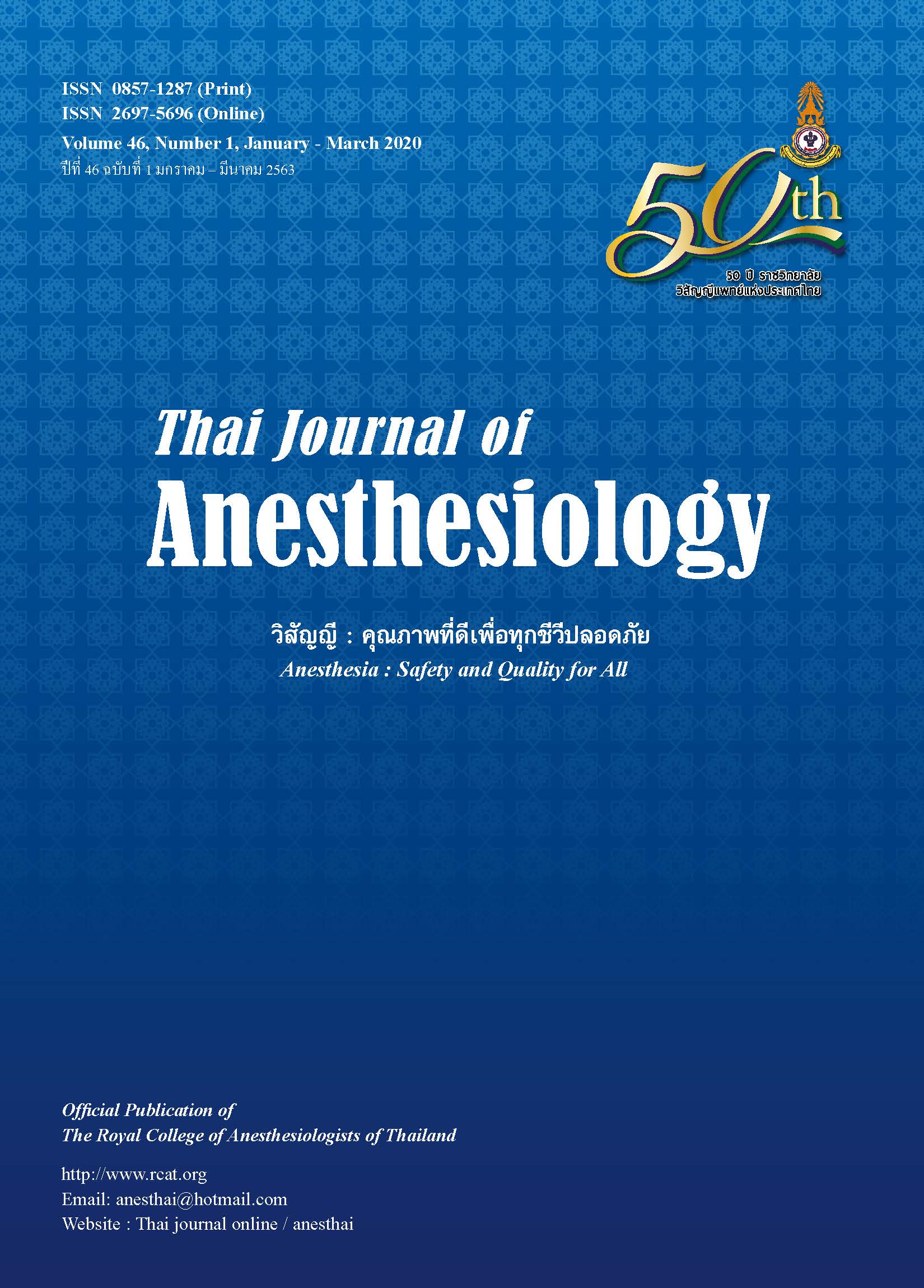How to Study and Not Forget: Spaced Learning and Its Application in Medical Education
Main Article Content
Abstract
Forgetting is a paramount problem for learners and
teachers in health sciences. Studies in the past decades
have shown that spending a lot of time to learn in one
session does not promote long-term retention, and that
learners will quickly forget. On the contrary, one way to
slow down forgetting and improve knowledge retention is
to spend less time for each study session and to wait for
some time to pass before reviewing the same materials.
This is the basis of spaced learning. Numerous studies
have demonstrated spaced learning to be a highly effective
learning technique, and that it is widely applicable to
various age ranges and content domains. This learning
technique can also be adapted in both systematic and
personal ways, for example, by designing instructions as
spiral curricula, and by taking practice tests to identify
strengths and weaknesses of a person and using the info
to craft an efficient learning plan.
Article Details
References
DD. Spaced education improves the retention of clinical
knowledge by medical students: a randomised controlled
trial. Med Educ 2007;41(1):23-31.
2. Custers EJFM. Long-term retention of basic science
knowledge: a review study. Adv Health Sci Educ 2010;15(1):
109-28.
3. McKenna SP, Glendon AI. Occupational first aid training:
Decay in cardiopulmonary resuscitation (CPR) skills.
J Occup Psychol 1985;58(2):109-17.
4. D’Eon MF. Knowledge loss of medical students on first year
basic science courses at the university of Saskatchewan.
BMC Med Educ 2006;6:5. doi: 10.1186/1472-6920-6-5
5. Ebbinghaus H. Memory: A contribution to experimental
psychology. Ann Neurosci 2013;20(4):155-6.
6. Bahrick HP. Maintenance of Knowledge: Questions About
Memory We Forgot to Ask. J Exp Psychol Gen 1979;108(3):
296-308.
7. Dunlosky J, Rawson KA, Marsh EJ, Nathan MJ, Willingham
DT. Improving Students’ Learning With Effective Learning
Techniques: Promising Directions From Cognitive and
Educational Psychology. Psychol Sci Public Interest
2013;14(1):4-58.
8. Bahrick HP, Bahrick LE, Bahrick AS, Bahrick PE. Maintenance
of Foreign Language Vocabulary and the Spacing Effect.
Psychol Sci 1993;4(5):316-21.
9. Kerfoot BP. Learning Benefits of On-Line Spaced Education
Persist for 2 Years. J Urol 2009;181(6):2671-3.
10. Kerfoot BP, Kearney MC, Connelly D, Ritchey ML. Interactive
Spaced Education to Assess and Improve Knowledge of
Clinical Practice Guidelines: A Randomized Controlled Trial.
Ann Surg 2009;249(5):744-9.
11. Kerfoot BP, Baker H, Pangaro L, Agarwal K, Taffet G,
Mechaber AJ, et al. An Online Spaced-Education Game to
Teach and Assess Medical Students: A Multi-Institutional
Prospective Trial. Acad Med 2012;87(10):1443-9.
12. Kerfoot BP, Lawler EV, Sokolovskaya G, Gagnon D, Conlin
PR. Durable Improvements in Prostate Cancer Screening
from Online Spaced Education. American J Prev Med
2010;39(5):472-8.
13. Kerfoot BP, Armstrong EG, O’Sullivan PN. Interactive
Spaced-Education to Teach the Physical Examination: A
Randomized Controlled Trial. J Gen Intern Med 2008;23(7):
973-8.
14. Toppino TC, Kasserman JE, Mracek WA. The effect of
spacing repetitions on the recognition memory of young
children and adults. J Exp Child Psychol 1991;51(1):123-38.
15. Harden RM. What is a spiral curriculum? Med Teach 1999;
21(2):141-3.
16. Snider VE. A Comparison of Spiral Versus Strand Curriculum.
J Direct Instr 2004;4(1):29-39.
17. Kerfoot BP. Adaptive Spaced Education Improves Learning
Efficiency: A Randomized Controlled Trial. J Urol 2010;
183(2):678-81.
18. Shepard LA. The Role of Assessment in a Learning Culture.
Educ Res 2000;29(7):4.
19. Heeneman S, Oudkerk Pool A, Schuwirth LWT, van der
Vleuten CPM, Driessen EW. The impact of programmatic
assessment on student learning: theory versus practice. Med
Educ 2015;49(5):487-98.
20. Schuwirth LWT, Van der Vleuten CPM. Programmatic
assessment: From assessment of learning to assessment for
learning. Med Teach 2011;33(6):478-85.


